A Time There Was
1979 , Aldeburgh (Suffolk)
Cat no. 519
No video
There’s no web video for this work.
Please do get in contact to discuss other ways you could view this work.
A profile of Benjamin Britten.
This film begins with black and white scenes of a Britten arriving on stage to conduct a promenade concert at the Royal Albert Hall. Leonard Bernstein talks over these shots. There are shots of the interior and exterior of the cottage at Horham that he rented at the end of his life. The film's first subject is Britten's early life. His cousin, Elsie, talks about his upbringing in Lowestoft. Over shots of Britten rehearsing in the Concert Hall at Snape Maltings for the 1967 Aldeburgh Festival and playing a Mozart Piano Duet with Statislav Richter, she explains that he was called Benjamin because he was the youngest. There are shots of his family home on Kirkley Cliff Road, Lowestoft. Stills from his childhood are shown over interviews with his sisters and with his brother, who describe him as sensitive but tough. A sister recalls her mother forecasting that Ben would become the first genius of the middle classes. Britten's love for the sea came from his upbringing in Lowestoft. The film shows shots of the Aldeburgh lifeboat and Archive film of the herring fishing industry as well as shots of Benjamin Britten on Aldeburgh beach. There are scenes from a performance of Curlew River from the Church of Holy Trinity, Blythburgh. Over stills of Britten as a young man, Peter Pears talks about Britten's religious views and of his reasons for writing. Britten talks of his early musical experiences growing up in Lowestoft. These were restricted to local choral concerts and the occasional chamber concerts. In 1924 he attended the Triennial Festival in Norwich where Frank Bridge's The Sea was performed. Through his viola teacher, he met Bridge in 1927. He showed him some of his work and became his pupil. During this sequence there are shots of St. Andrew's Hall and of Norwich Cathedral. He explains that his pacifist views came from Bridge. There are shots of his school as he explains that his parents were concerned that he should have an education to fall back on in case music as a career didn't work. He attended the Royal Academy of Music in London. There is a shot of the house in which he first lived and later of the flat in Charlotte Street that he shared with Peter Pears, then a member of the BBC Singers. Britten had one early piece performed in London, but found it difficult to shake off a view of him as a provincial figure. Meeting W.H. Auden helped in this respect. His diary is shown and there is an exterior shot of the Mercury Theatre in London where many of Britten's early works were performed. Britten wrote some film music including the music for Paul Rotha's The Way To The Sea in 1935 and People of Britain. The opening shots of these films are shown. Paul Rotha talks of his memories of Britten. People of Britain was a film about the arms race. Peter Pears takes up the story of Britten's life. In 1938, he and Britten joined Auden in America. As pacifists, they feared internment. Pears recalls that they were called cads, cowards, and deserters. Archive film shows liners leaving and arriving in New York. For three years, they stayed with the Mayer family in Amityville, Long Island. They went for a weekend and stayed for three years. During this time, the Mayer's looked after them as they had no money. Still speaking in a German accent, the Mayers' daughter recalls their stay. Private film shows the house and Britten and Pears at the piano and on the beach. The Mayers were music lovers and Britten and Pears repaid them with music. Rothman recalls Britten and Pears involvement with the local music. Albert Einstein was a visitor on occasions. Britten wrote Paul Bunyan to be performed in Southold, Suffolk County, Long Island by the Suffolk Friends of Music Orchestra. This received bad reviews. Pears recalls that they suffered many of those in the US. In 1944 they returned to England, to a converted mill Britten had bought before the war in Snape. There are general scenes of Suffolk and of Aldeburgh, including the Moot Hall. Britten's first piece on returning to England was Peter Grimes. This was based on a poem by Aldeburgh born George Crabbe, called Borough. The bust of Crabbe in Aldeburgh Church features. The problem facing Britten was that most of the theatres and concert halls were closed, indeed many, including the Saddlers Wells, (as the Mercury had become) had been bombed. Joan Cross of the Saddlers Wells worked to get the performance on. The film shows newsreel footage of the preparations. It opened in 1944. There are scenes from the performance with Peter Pears as Grimes. Pears recalls that the audiences were marvellous although the critics were not too sure. The sequence ends with a preposterous interview with the cleaning lady.The next section concentrates on productions of Britten's work. There are shots of him at his desk writing Death In Venice. He and Pears talk about his work. Pears recalls that Britten never thought of himself as a great composer. For him great meant Mozart. Dame Janet Baker performs a Cantata written for her by Britten. At Glyndebourne, the film recalls `The Rape Of Lucretia, written for the re-opening of the Opera House. Rudi Bing talks about the piece, which was sung by Kathleen Ferrier. Britten recalls that The Rape of Lucretia' was another tale of poor audiences and poorer reviews. Between 5th and 12th June, 1948 he held the first Aldeburgh Festival. He explains how the place and its venues shaped the Festival. the main concert hall was the Jubilee Hall in Aldeburgh, which could seat 320 people. Many of his smaller works were written with the Jubilee Hall or a local church in mind. Local amateur choruses were only available at weekends, therefore choral concerts were scheduled for then. There is film of `Noye's Fludde' in rehearsal. This was one of Britten's works written for children. He speaks of his respect for children as performers and as an audience. Julian Bream talks in Blythburgh Church about a commission from Britten, which he plays. Britten talks of his affinity with the sea. This leads into scenes from a production, shot in black and white in 1951, of Billy Budd with Theodor Uppman playing Billy Budd and Peter Pears playing Captain Vere. This was written for the Festival of Britain and was another tale of bad press reviews. Flawed and purposeless were two adjectives used. The next sequence opens with a gamelan orchestra and film and stills of a trip to the far east in 1955. This encouraged Britten's interest in percussion and led to him writing `The Prince of the Pagodas'. There are scenes from St. Bartholomew's Church, Orford of the recording of The Burning Fiery Furnace. Pears is one of the soloists. Britten liked working near to his home. In 1967 he bought the Snape Maltings to convert into a concert hall for the Festival. There is film of the building work in progress, of Stephen Rice, the general manager, and of the visit by Henry Moore prior to opening, to oversee the siting of his works commissioned for the building. In July, 1967, HM the Queen, accompanied by HRH The Duke of Edinburgh, opened the concert hall. The last sequence of the film is about Britten's later life told by Peter Pears and by his nurse. Pears talks about the strain on Britten of being a public figure. He also talks about their relationship that he describes as passionately devoted and close and about his thoughts about the gay movement. He describes the word as absurd although concedes that it is an improvement on homosexual. These interviews and later film and stills of Britten are intercut with scenes from his last opera, `Death In Venice'. Pears plays Aschenbach. There are scenes of them in Venice, Britten in a wheelchair, where he had composed Curlew River. These scenes include San Marco, the Doge's palace and the Grand Canal. This sequence also looks back to his childhood. Pears talks about his death in 1976. The film ends with Britten's funeral and shots of Snape Maltings.
Featured Buildings
The Church of St. Peter and St. Paul, Aldeburgh; Norwich Cathedral; Jubilee Hall, Aldeburgh; St. Andrew's Hall, Norwich; Moot Hall, Aldeburgh; The Doge's Palace, Venice; St. Bartholomew's Church, Orford; San Marco, Venice; The Church of Holy Trinity, Blythburgh ; The Maltings Concert Hall, Snape; The Opera House, Glyndebourne; Royal Albert Hall; The Mercury Theatre, London
Featured Events
The Aldeburgh Festival, 1948; The Festival of Britain, 1951; The Aldeburgh Festival, 1967
Keywords
Arts festivals; Composers; Music; Opera
Other Places
Norwich, Norfolk; Amityville, Long Island, USA ; Southwold, Long Island, USA; Horham Snape; London; Venice; Lowestoft
Background Information
Many of the shots for this film were taken from another film held by the Archive - Benjamin Britten and his Festival. An example of Britten's film writing can be found in Around The Village Green. Peter Pears was born in 1910 and was educated at the Royal College of Music. He was a member of the BBC Singers from 1934-37 and of the New English Singers from 1936-38. As well as the tours covered here he toured Europe and America with Julian Bream in 1956 and with Osian Ellis in 1972. He was a member of the Sadlers Wells Opera from 1943- 46 and of the Covent Garden Opera Company during 1948. He sang Peter Grimes in Peter Grimes in 1945 and 1960; Aschenbach in Death in Venice in 1974 and Vere in Billy Budd in 1978, both with the New York Metropolitan Opera.In 1947 he co-founded the English Opera Group and in 1948 co-founded the Aldeburgh Festival with Britten. In 1972 he co-founded and became Director Of Singing at the Britten Pears School of Advanced Music at Snape. He became President of the Incorporated Society of Musicians in 1970. He was the Cramb lecturer at the University of Glasgow in 1961 and became an Hon. Fellow of Keble College, Oxford, in 1978. He was awarded honorary degrees by the Universities of York, Sussex, Cambridge, Evansville (Indiana), Edinburgh, East Anglia, Oxford and Essex. He was the ISM Musician of the Year in 1978 and was awarded the Queen's Jubilee Medal in 1977. He was awarded the CBE in 1957 and was Knighted in 1978. If, as he claims in he film, Benjamin Britten made him, he certainly had a lot of help. Peter Pears died on the 3rd April, 1986.The film of Billy Budd was from a 1966 BBC2 production in a series called Opera 625. Also appearing in this was Benjamin Luxon.
Director : Tony Palmer
Camera : Nic Knowland
Editor : Melvyn Bragg
Presenter : Melvyn Bragg
Other : Jill Burrows (researcher)
Other : Annuziata Asquith (researcher)
Producer : Donald Mitchell (associate producer)
Editor : Graham Bunn
Sound : Brian Saunders
Production company : London Weekend Television
Manifestations
A Time There Was
Genre: Television / Arts / Biography
Locations: Aldeburgh (Suffolk)
Description Type: monographic
Related to: The South Bank Show
Subject: Norwich / Noye's Fludde (opera) / music / Orford / Mayer family, Amnityville / Lowestoft / St Bartholomew's Church, Orford / Venice / Julian Bream / Sviatoslav Richter / Snape Maltings / Peter Pears / Royal Albert Hall / Paul Rotha / herring fishing / Billy Budd (opera) / Church of Holy Trinity, Blythburgh / Benjamin Britten / Jubilee Hall, Aldeburgh / Aldeburgh / Church of St Peter & St Paul, Aldeburgh / Aldeburgh Festival / Horham / Death in Venice (opera) / homosexuality / Janet Baker / Henry Moore / funerals
Copyright restrictions apply.
Please see our terms of use. Films on this website are provided for personal viewing. Should you wish to use the films in any other way please contact eafa@uea.ac.uk
terms of useThe data for this page was generated on 16/02/2026 07:01:17+00:00. Click to regenerate this page .



